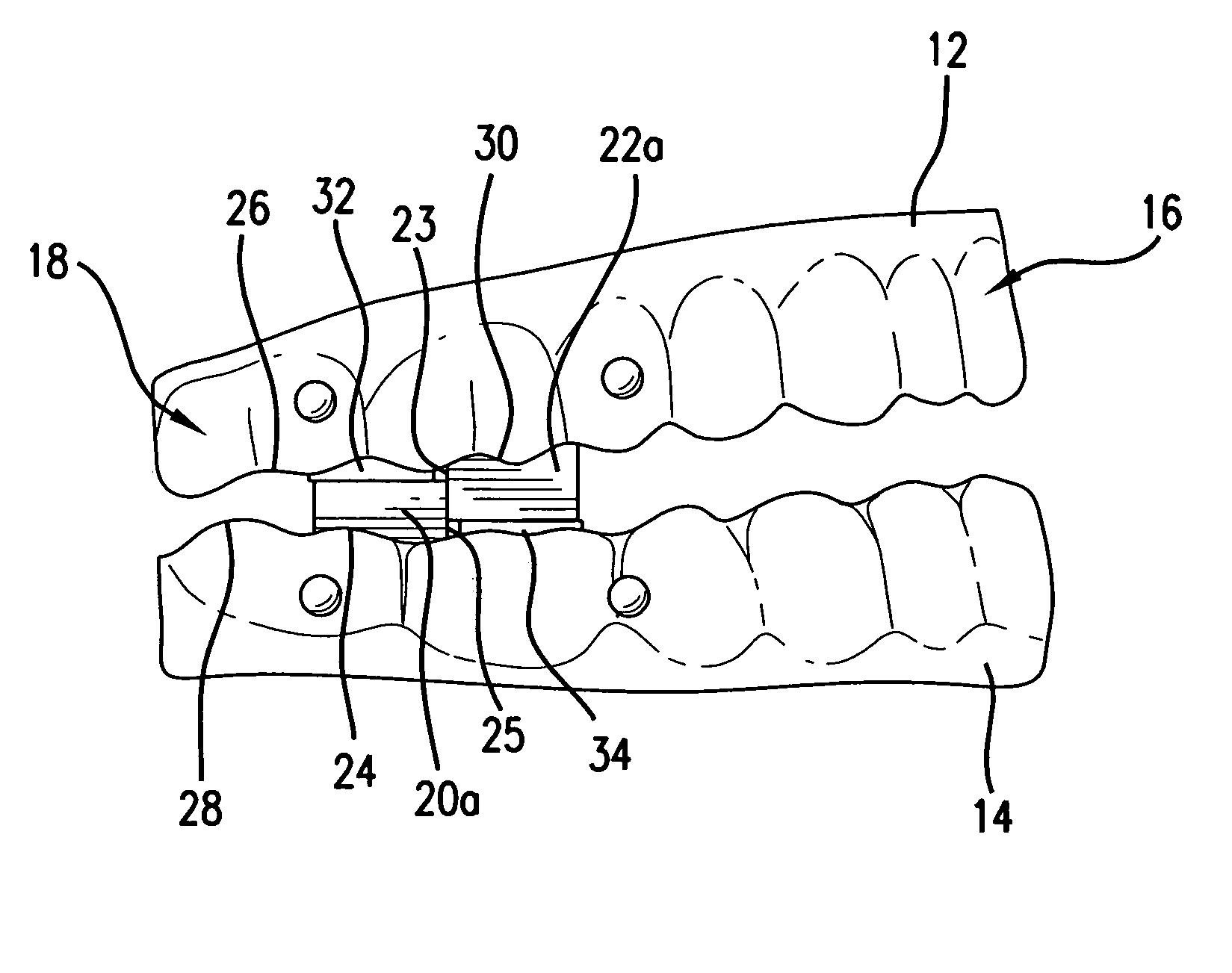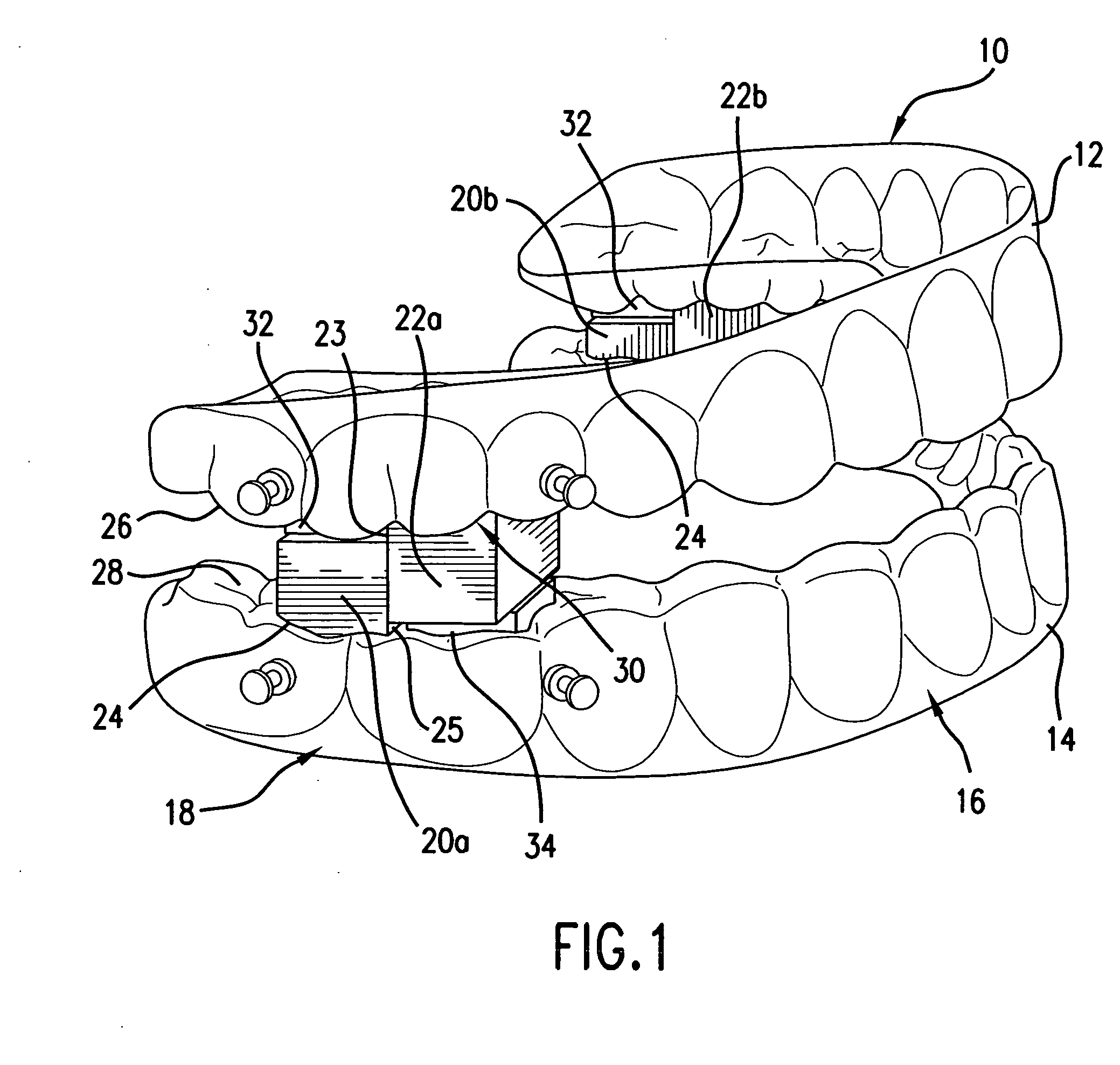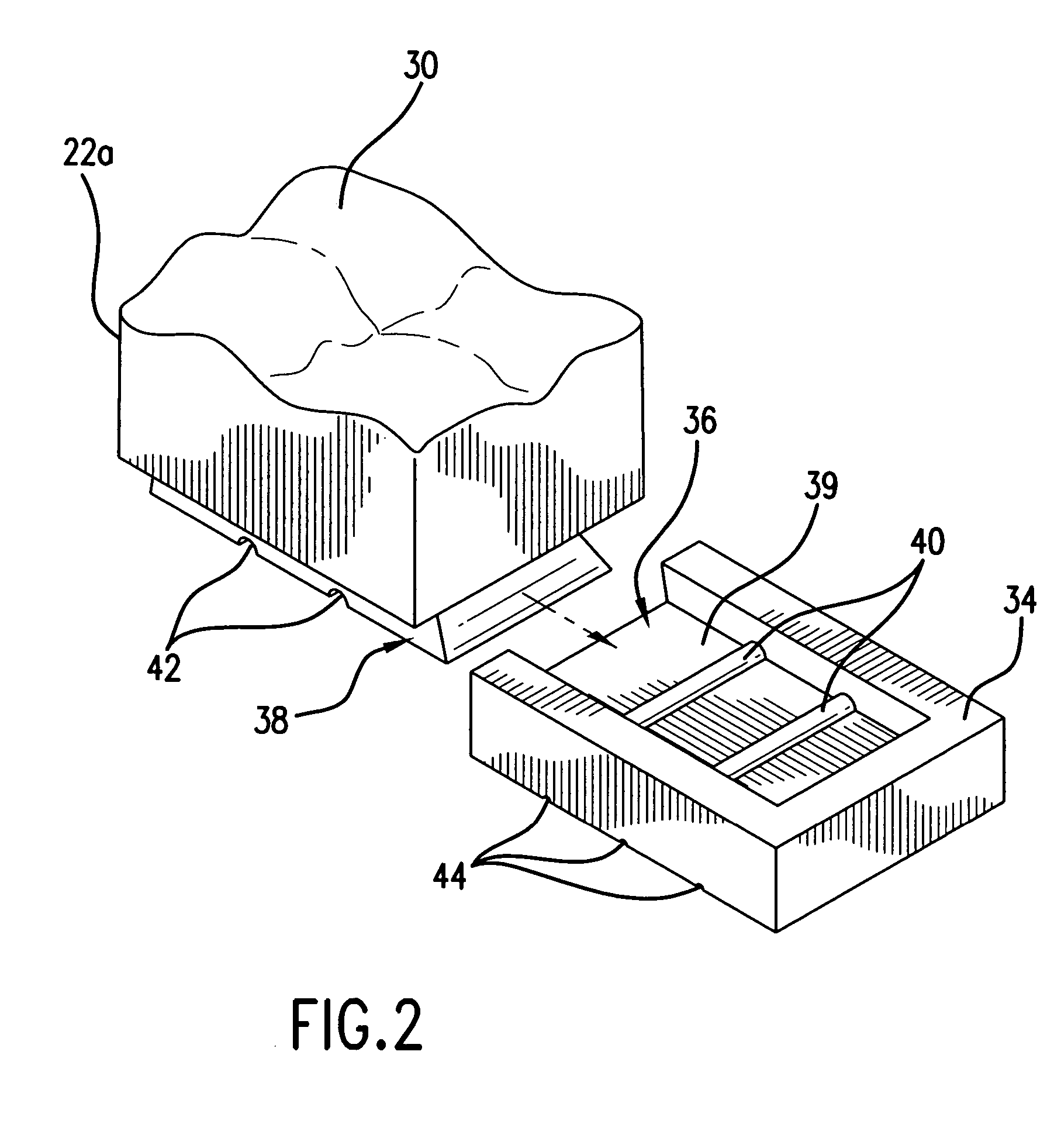Dental appliance for the treatment of sleep disorders
a technology for dental appliances and sleep disorders, applied in the field of oral dental appliances, can solve the problems of not being fully customizable by the user, affecting the treatment effect, so as to prevent posterior movement of the mandible and improve the treatment effect. lateral and vertical flexibility of the mandibl
- Summary
- Abstract
- Description
- Claims
- Application Information
AI Technical Summary
Benefits of technology
Problems solved by technology
Method used
Image
Examples
Embodiment Construction
[0028] With reference to the drawings, the invention will now be described in more detail. Referring to FIG. 1, a dental appliance, designated generally as 10, is shown for spacing the occlusal surfaces of a user's maxillary and mandibular teeth and advancing the mandible.
[0029] Appliance 10 includes an upper tray 12 adapted for receiving the maxillary teeth of the upper jaw, and a lower tray 14 adapted for receiving the mandibular teeth of the lower jaw. Both upper tray 12 and lower tray 14 are defined as having an anterior portion, designated generally as 16, which receives the teeth along the front of the jaws, and a posterior portion, designated generally as 18, which receives the teeth along the rear portions of the jaws. Preferably, the trays are made of a co-polyester plastic material or other commonly known plastic used by those skilled in the art. However, the trays are not limited to being made of a specific plastic, but rather may be made of any material suitable to carr...
PUM
 Login to View More
Login to View More Abstract
Description
Claims
Application Information
 Login to View More
Login to View More - R&D
- Intellectual Property
- Life Sciences
- Materials
- Tech Scout
- Unparalleled Data Quality
- Higher Quality Content
- 60% Fewer Hallucinations
Browse by: Latest US Patents, China's latest patents, Technical Efficacy Thesaurus, Application Domain, Technology Topic, Popular Technical Reports.
© 2025 PatSnap. All rights reserved.Legal|Privacy policy|Modern Slavery Act Transparency Statement|Sitemap|About US| Contact US: help@patsnap.com



